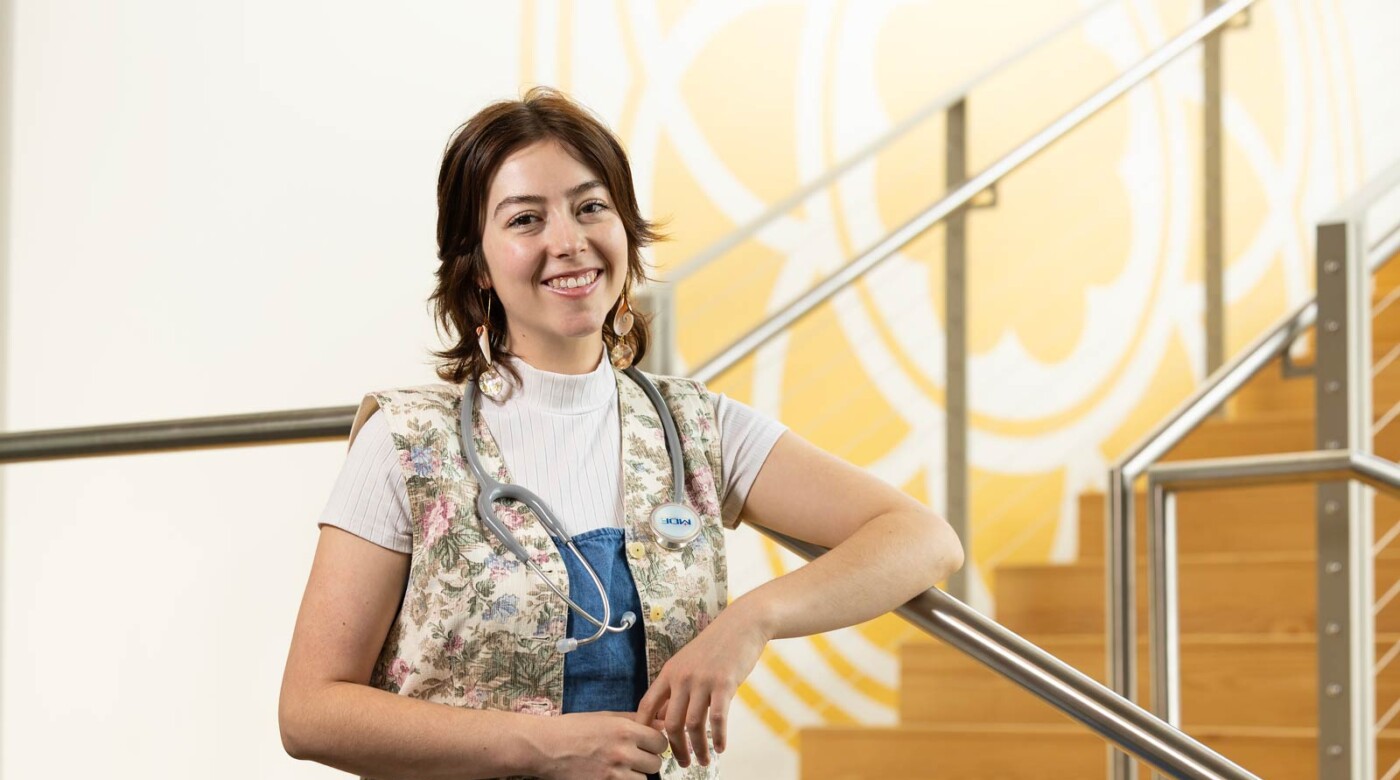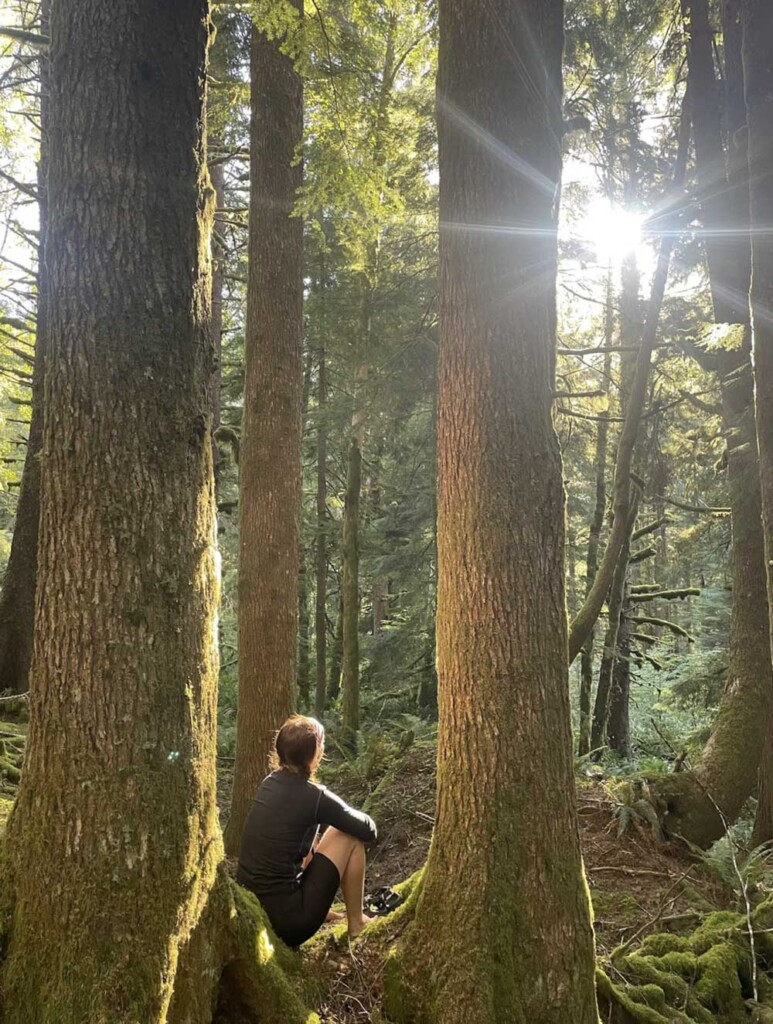Olivia Tate: Interdisciplinary scholar, advocate, and future nurse scientist

By Britt Board
Assistant Director of Communication
When Olivia Tate ’25 tells people she’s triple majoring in nursing, religion, and Native American and Indigenous studies — with a Peace Corps prep minor — the usual response is one of confusion and curiosity. But for Olivia, those reactions confirm that she’s on the right path.
“Those head tilts and questioning looks are all the more confirmation I am studying the right disciplines,” she says. “Not enough people understand how imperative the intersectionality of religion and healthcare is to systemic, communal, and personal wellbeing.”
Not enough people understand how imperative the intersectionality of religion and healthcare is to systemic, communal, and personal wellbeing.
At PLU, Olivia has spent the last five years prioritizing rigorous academics, advocacy, and spiritual exploration. It’s a multi-dimensional approach that is a hallmark of how Olivia thinks. That kaleidoscopic thinking came together during her internship with the Nisqually Tribal Library — an opportunity that allowed her to apply her academic interests in healthcare, Indigenous studies, and community wellness.
“As a person non-native to Washington, it’s vital I make connections with the original and continuing stewards of this land,” she says. “Through the internship, I wanted to help enhance the health and wellness collection in the Nisqually Tribal Library to support enrolled tribal and community members with relevant materials.”
Olivia audited existing resources in the library, identifying outdated content and removing materials with anti-Indigenous sentiments. She then gathered community feedback through informal conversations and a survey published in The Mast, PLU’s student newspaper. “Renée Remlinger-Tee, PLU professor Nancy Jo Bob (q̓ʷat̓ələmu ɫukʷalabəɫ), and Danessa Wilson-Moon supported me throughout every step of the internship,” she says. “To apply these interests in tandem with the Nisqually Tribal Library is truly an honor and a privilege.”
Her interest in health equity and Indigenous frameworks also shaped her own research projects. After joining the Sigma Theta Tau International Honor Society of Nursing, Olivia attended regional conferences and supported a qualitative study led by Dr. Carrie Ann Matyac on traditional and Western medical beliefs in Zapotec communities.
Olivia’s own research explores complex and relevant ideas — what she describes as “the intersection of food sovereignty, lactation, and policy.” Her capstone examines “First food produced through the ceremonial act of chestfeeding as a sacrament of liberation and sovereignty, analyzed using American Indian Liberation Theology and other Indigenous methodologies.” It’s a project that bridges academic research with lived Indigenous experience and social issues.
Though her academic resume is remarkable, Olivia grounds herself through nature and reflection. “I often joke to my friends saying, ‘I need to go touch grass and blink slowly,’” she says. “Backpacking in the Olympic Peninsula or staring at the enormous heights of an elder cedar tree in Point Defiance Park reminds me to sit in stillness and silence.”
When asked to share a favorite PLU memory, she couldn’t choose just one. “My time at PLU has been nothing short of a phenomenal adventure. Whether serving as a Senator of the Associated Students of PLU (ASPLU), acting as a board member in Delta Iota Chi and the American Red Cross Club, volunteering as a Rieke Scholar, or playing intramural sports, I’ve always found a welcoming environment to call home.”
The thread that tied it all together? For Olivia, that’s an easy answer: “I can undoubtedly attest the relationships made with the people of these communities mold me into the person I am today and uplift the person I hope to be tomorrow,” she reflects.
With her PLU chapter coming to a close, Olivia already has her next steps mapped out. “I’ll be taking the NCLEX in July, and if all goes well, securing a job in neuro-trauma ICU,” Olivia says. “My ultimate career aspiration is to acquire my doctorate as a nurse scientist to conduct research with and about Native communities using Indigenous methodologies and frameworks.”
But Olivia knows that no career path exists in a vacuum — it’s shaped by the realities of the world around her. Reflecting on the political climate’s impact on her work, Olivia doesn’t mince words. “It is necessary for people to understand that the effects of political current events are not something of the future, but a problem of the present.”
Behind Olivia’s accomplishments is a deep sense of gratitude. “These last monumental five years would not have been possible without the financial support of scholarships, and I am forever grateful to all who invested in my future.”



